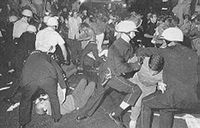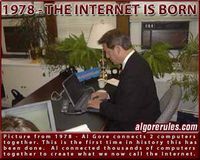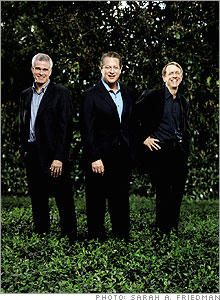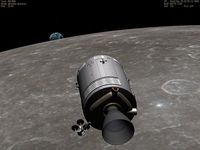Think of this as Volume 15, Number 27 of A-Clue.com, the online newsletter I've written since 1997. Enjoy.

Our current conflict is being played out in two media, with the newer Internet bringing change from the bottom-up against the top-down approach of TV.
This has resulted in a manic-depressive political pattern, low-turnout landslides in off-year elections giving advantage to intense movements created online, a trend that's moderated in Presidential years. (Compare it to thin-trade and broadly-traded markets.) The Internet creates intensity from the bottom-up.
Contrast this with the 1960s, where TV gradually imposed order on what was a social conflict seen best in movies and music. Or the 1930s, mass movements built out of movie propaganda and mass radio audiences. Or the 1890s, when newspapers could start wars and enable elite reform to triumph over mass urban and rural protests. Or the 1860s, where book readers fought a great Civil War over great principles.
The intensity of feeling in a crisis has little to do with what media is driving it, but the rising medium's attitude toward the question eventually dominates.

The Obama campaign is the Amazon.Com of politics. They have, and will, dominate our time because they can scale intimacy. This was the secret of 2008, not the fund-raising at the front-end, but the ability to create volunteer armies in which millions felt they were being heard and could act on a core set of beliefs.
I have no doubt about the top-line result of next year's election. The question is whether our politics and overcome the real crisis of our time, the artificial scarcity of fossil fuels requiring a War Against Oil and the harvesting of abundance.

This is the crucial period. The President has gained the credibility needed to address our crisis thanks to the killing of Osama bin Laden, which in turn has given him room to reduce troop levels. But ending the war is really a sideshow to getting the economy going again, through a true War Against Oil.
Enter (stage left) Al Gore. Gore is a great symbol of the last decade's mistake, the capture of our system by the oil power. Gore, however, is still making his case in the wrong way, demanding sacrifice when investment is needed.

The problem is that the organic growth of the space is not sufficient to deal with the problem's scope, which is why he is now pressing the President from the left. And he's not alone. Liberal solutions are no longer just for liberals. When bond king Bill Gross demands infrastructure investment even while saying our financial situation is worse than that of Greece, something very serious is going on.
The American political system is unlike that of any other country. Because we have frequent elections, and because power is balanced between executive and legislature, a President lacks the free hand a Prime Minister has in a parliamentary system. The boat, of necessity, turns more slowly.
While President Obama has disappointed liberals, in other words, we're smart enough to know he's not the political problem. Congress is the political problem. The President right now is responding to a strong breeze to his right, and seeking to tack against it. If the breeze were coming from the left, his inclination would be to tack against that, too, but he would be going in the correct direction.
Al Gore is a great man, but a horrible politician. He is, at heart, a journalist (which is what I am) so he tends to skim the surface of change, often unaware of the deeper waves and their meaning.
Underneath the surface of our politics a wave is forming. It is, in part, a reaction to the Crazy. It demands a new consensus, one based on science, on the weapons of peace, and it is dedicated to giving our children a better world, where abundance is harvested, and in which the terraforming of our planet in a manner that brings all mankind into the light can finally begin.
The problem is the way the wave is being sold, its message. The message should be growth, not sacrifice. The message should be economic, not political.
If I could tell Al Gore one thing, right now, it would that telling us how much he's worth, and how much he has made, through the investments of his private life could be the tonic we need to change our public life. Because the public agenda of the environment and the private agenda of energy investment should not be in conflict.
Instead of lecturing the President on climate change, show us how redirecting our financial energies will bring a return, not just to the Earth but to all those who live on it. Point us toward the research we need to do, and please show us the money.
Americans will do the rest.

We have been to the Moon, we have defeated tyrannies at home and abroad, we have brought people from every corner of the world into the light of prosperity.
We can do this. But we need you to see the wave, not just the surf. We need to see more of the Utopia, the shining city on the hill, and less of your dystopic nightmares.
Change is the product of hope, not fear.









